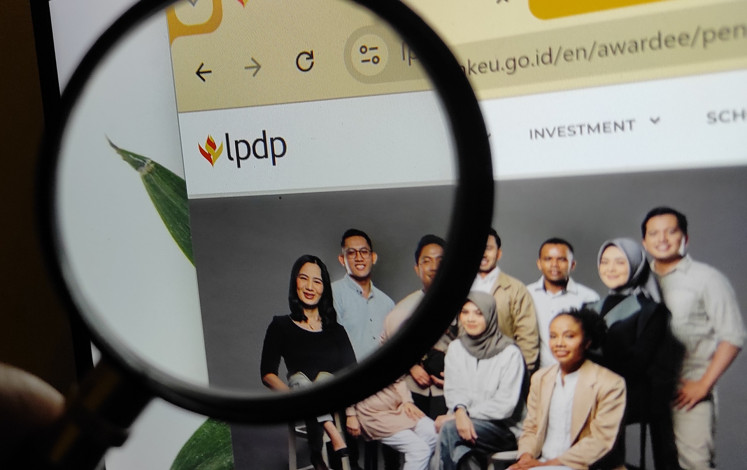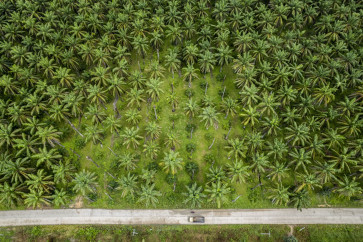Popular Reads
Top Results
Can't find what you're looking for?
View all search resultsPopular Reads
Top Results
Can't find what you're looking for?
View all search resultsWhich path will Indonesia’s palm oil sector take next?
Local governments play a crucial role in promoting multi-stakeholder processes to drive policy innovation for sustainable palm oil.
Change text size
Gift Premium Articles
to Anyone
E
nvironmental news is rarely good news these days, so when there is a positive story to tell – about human intervention that is successful – it should be shared widely and studied carefully so that the lessons can be learned.
Indonesia is a case in point – where deforestation has declined for more than a decade thanks to a combination of government and private sector action and civil society focus. However, in recent months, the prospect of reversing this trend has arisen – so now is a good time to understand what is really going on and how Indonesia’s palm oil sector can continue to flourish in a sustainable way.
In many ways, the palm oil sector in Indonesia is one of a few success stories, demonstrating how economic growth and environmental protection can coincide. The government implemented a number of policies to improve palm oil governance and reduce deforestation, and major palm oil producers have made or adopted No Deforestation, No Peat, No Exploitation (NDPE) commitments and developed an Implementation Reporting Framework.
By 2020, more than 300 companies had some form of commitment to sustainable palm oil and NDPE policies covered 83 percent of palm oil refining capacity in Indonesia and Malaysia.
Local governments play a crucial role in promoting multi-stakeholder processes to drive policy innovation for sustainable palm oil. Some districts in Indonesia (as part of Sustainable District Forum-LTKL) have demonstrated their commitment by empowering independent smallholders, enhancing data and monitoring systems and developing regional action plans for sustainable palm oil, all integrated into their district-level readiness.
To systematically advance sustainability, these districts follow a blueprint based on policy and planning innovation, multi-stakeholder processes, co-creating sustainable business and investment, measuring progress and narrative amplification.
By implementing this blueprint, districts are strengthening their governance frameworks and fostering long-term sustainable transformations.



















